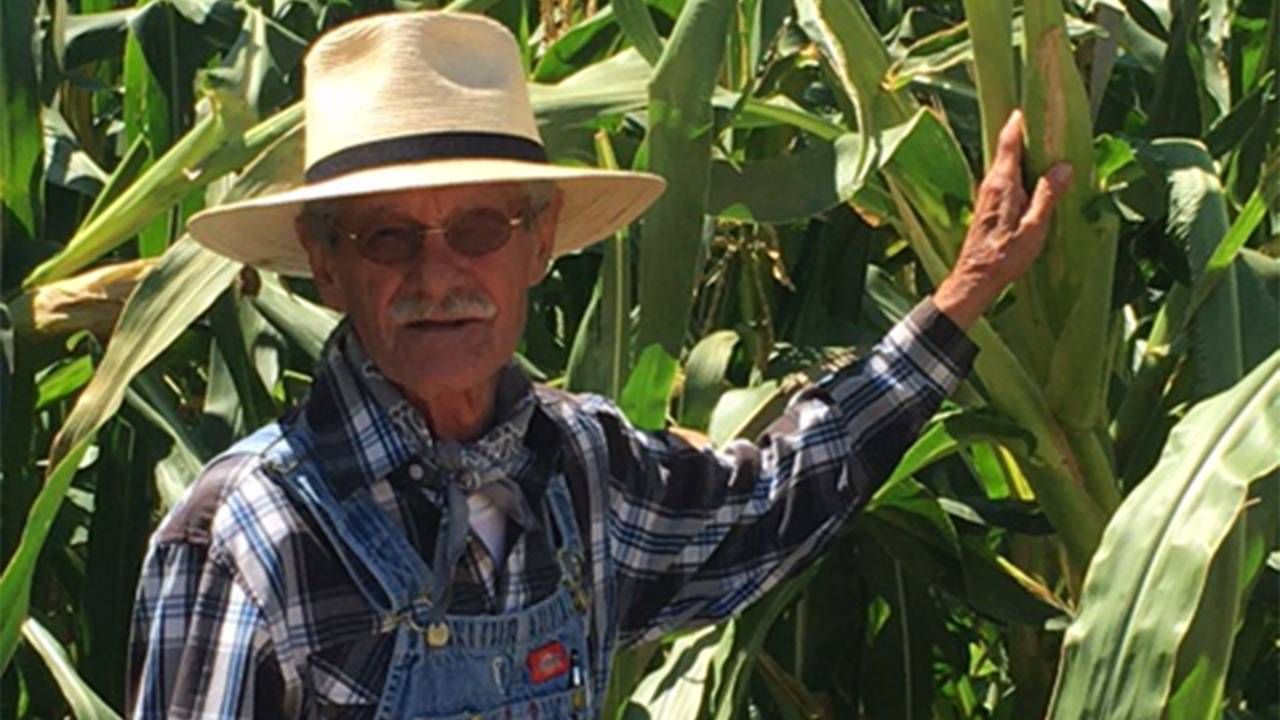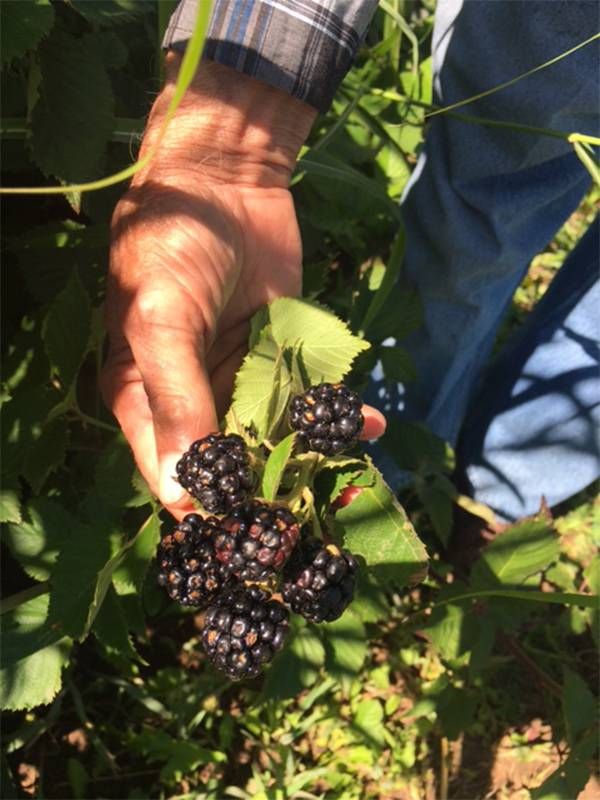A New Mexico Farmer's Most Important Crop Might Be the Next Generation
Lorenzo Candelaria’s connection to the land helps him weather climate challenges, while he encourages young people to ‘put their hands in dirt’
The reverence that seventh-generation farmer Lorenzo Candelaria holds for his family's historic land was instilled — literally — at birth. Born two months premature at his grandmother's isolated New Mexico ranch, Candelaria was placed in a traditional outdoor horno oven made with adobe bricks that were heated to keep him warm.

"My grandmother was a midwife and a curandera (traditional healer), and she knew that a creature that delicate required heat to survive," says Candelaria. "So she fired up the horno and incubated me in it."
"She said, 'The love, honor, the respect and the duty that you have to your mother, you must also have to your Mother Earth.'"
The two talked about that episode at the end of his grandmother's life, and she delivered the wisdom that guides Candelaria to this day. "She said, 'The love, the honor, the respect and the duty that you have to your mother, you also must have to your Mother Earth, because it was from both wombs that you grew up into the light,'" Candelaria says. "And so my connection to the land is profound."
The 76-year-old Albuquerque-area farmer demonstrates that daily, as he raises blackberry plants, mostly for a local historic inn, and corn that is sold to nearby pueblos for food and ceremonial purposes.
Candelaria's son and grandson will be the next generations to work the four-acre Cornelio Candelaria Organics farm. The property is in the heart of the Atrisco Land Grant, a Spanish land grant that dates from 1692. There is history all around here, including a stone house that is one of the original structures and, most important, the acequia, or ditch system, that has delivered water to the occupants for hundreds of years.
Modern Challenges
So much has changed since Candelaria's family started working their acreage 350 years ago, and that includes, of course, the effects of climate change.
The Rio Grande, which is what many farmers rely on for irrigation, has seen decreasing levels for years. This summer, the riverbed went dry in Albuquerque for the first time in four decades.
Candelaria has a front row seat to the water changes. He is "mayordomo," or ditch boss, of the irrigation system that diverts Rio Grande water to his area and south to Isleta Pueblo, one of New Mexico's 19 pueblos.
He's the one who opens the gates and directs the water to users on a set schedule that all depends on the snowpack that's accumulated the winter before. He's seen the water levels drop, and he's experienced the rising temperatures that have forced changes in the planting of early crops.
Nonetheless, Candelaria has harvested a record 2,000 pounds of blackberries this year. And the corn is doing just fine, thanks to the drought-resistant strain he has developed over the past two decades.

"The corn and the squash and the melon I planted this year all come from the desert area," he says. "I got seed from the different pueblos, and I hybridized until I came up with one strand that is extremely drought-tolerant."
Also, the longtime farmer makes use of every bit of his blue corn crop, so little goes to waste. Besides the corn itself, the pollen is used for ceremonial purposes among Candelaria's Navajo and pueblo customers, and the leaves are used to make tamales, a traditional Mexican dish that is a favorite in New Mexico and the Southwest.
Candelaria's approach is to do what he can and take things as they come. "I don't worry. I quit doing that," he says. Farming "is a continuous cycle, and you don't look at in terms of what do I do next? You look at the present — what's happening now, what do I need to do to imitate the present. So worrying about next year is not something I do."
Leaving a Legacy
Candelaria is also a devoted and loving teacher, and his most important crop might just be the next generation.
Groups of kids come out to his farm regularly during the summer, from camps or schools. Recently, he hosted middle school students who rode their bikes from the Native American Community Academy and its after-school program Story Riders, which aims to connect indigenous and Latino youths with their culture and with nature.
The average age of the U.S. farmer is continuing a long-term trend of getting older, hitting 57½ years old in 2017, according to the Census of Agriculture's most recent data. "So there aren't too many young people involved in agriculture," Candelaria says. "They are our future. But what they learn about farming is secondary. The primary lesson here is love … for Mother Earth."
"Every season we live is precious, and there's no end to it. There's just another season."
So how does one teach that? For Candelaria, there is only one answer: "They put their hands in the dirt."
He figures that during the last 12 years of hosting young people, some of whom are at-risk, he can count five "whose lives I really changed." One was a young man who was suicidal, and "he almost died," Candelaria says. "I took him under my wing and worked his buns off."
And while the youth was getting his hands dirty, the older farmer explained that "everything's alive" and that everything — corn, blackberries, humans — go through seasons and that some of those can be really hard.
"These creatures, these beings, have a purpose in our lives, and the purpose is to show us that we live in seasons. And every season that we live is precious, and there's no end to it. There's just another season."
That young man is now among the top in his class at the University of New Mexico, and he stays in touch with the farmer who guided him at a crucial moment.
Says Candelaria, "I look at him today, and I think, 'Wow, what a gift that is to me.' That I was able to touch his soul and help him to understand the value of what it means to be alive."

